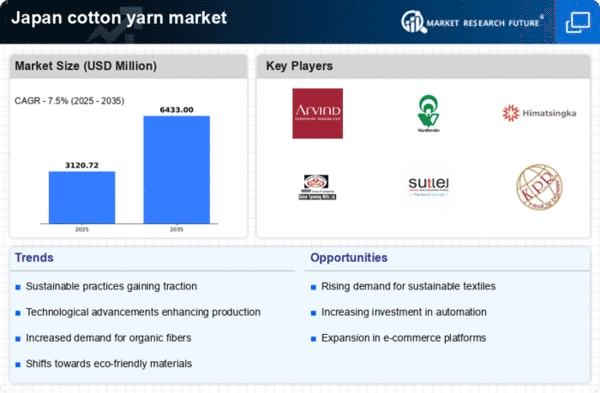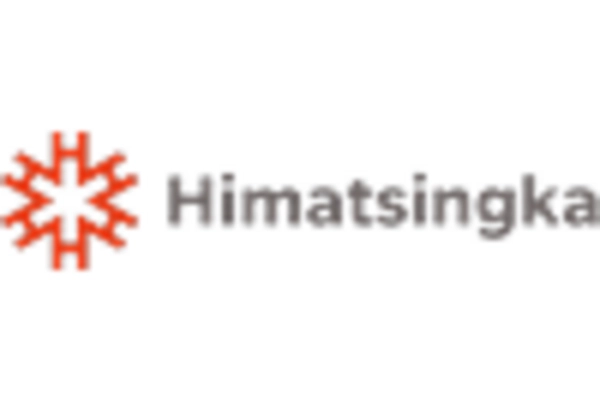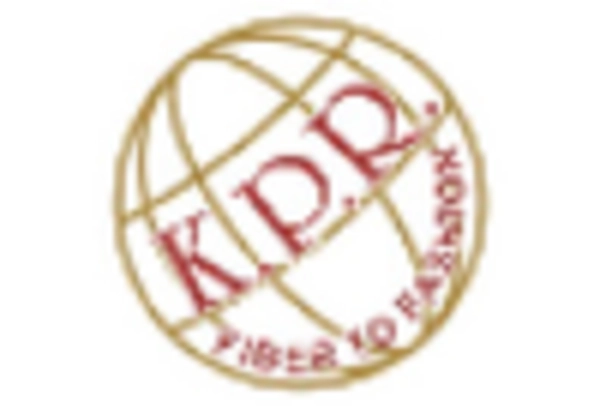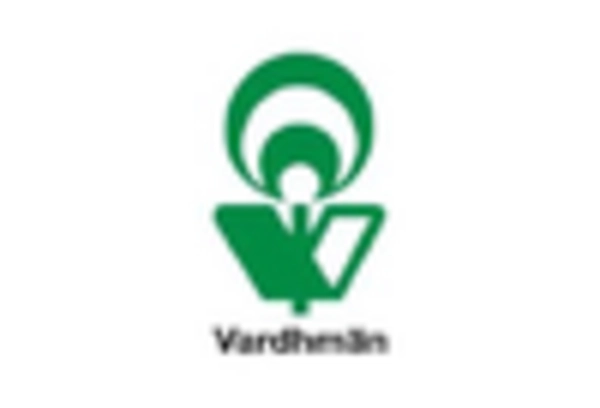The cotton yarn market in Japan exhibits a competitive landscape characterized by a blend of traditional practices and modern innovations. Key growth drivers include increasing demand for sustainable textiles, technological advancements in production processes, and a shift towards digitalization. Major players such as Arvind Limited (IN), Vardhman Textiles Limited (IN), and Himatsingka Seide Limited (IN) are strategically positioned to leverage these trends. Arvind Limited (IN) focuses on sustainability and innovation, aiming to enhance its product offerings through eco-friendly practices. Vardhman Textiles Limited (IN) emphasizes regional expansion and supply chain optimization, while Himatsingka Seide Limited (IN) is investing in digital transformation to streamline operations and improve customer engagement. Collectively, these strategies shape a competitive environment that is increasingly focused on sustainability and technological integration.In terms of business tactics, companies are localizing manufacturing to reduce lead times and enhance responsiveness to market demands. Supply chain optimization remains a critical focus, as firms seek to mitigate risks and improve efficiency. The market structure appears moderately fragmented, with several key players exerting influence while also facing competition from smaller, niche manufacturers. This dynamic fosters a competitive atmosphere where innovation and operational efficiency are paramount.
In October Arvind Limited (IN) announced a partnership with a leading technology firm to develop AI-driven solutions for optimizing production processes. This strategic move is likely to enhance operational efficiency and reduce waste, aligning with the growing emphasis on sustainability within the industry. The integration of AI technologies may also provide Arvind with a competitive edge in terms of product quality and responsiveness to consumer trends.
In September Vardhman Textiles Limited (IN) launched a new line of organic cotton yarns, catering to the rising consumer demand for sustainable products. This initiative not only strengthens Vardhman's market position but also reflects a broader industry trend towards eco-friendly materials. By diversifying its product range, Vardhman is likely to attract environmentally conscious consumers, thereby enhancing its brand reputation and market share.
In August Himatsingka Seide Limited (IN) expanded its manufacturing capabilities by investing in advanced textile machinery. This investment is expected to increase production capacity and improve product quality, positioning Himatsingka to better meet the demands of both domestic and international markets. The focus on advanced technology suggests a commitment to maintaining competitiveness in an evolving market landscape.
As of November current trends in the cotton yarn market are increasingly defined by digitalization, sustainability, and the integration of AI technologies. Strategic alliances among key players are shaping the competitive landscape, fostering innovation and collaboration. The shift from price-based competition to a focus on technological advancements and supply chain reliability is evident. Moving forward, competitive differentiation will likely hinge on the ability to innovate and adapt to changing consumer preferences, with sustainability becoming a core component of strategic initiatives.
















